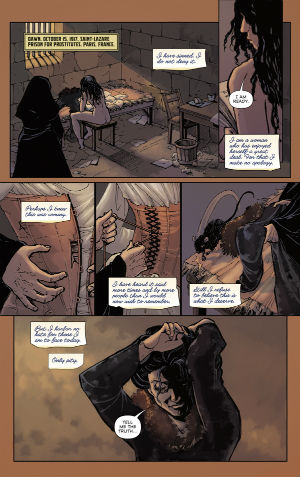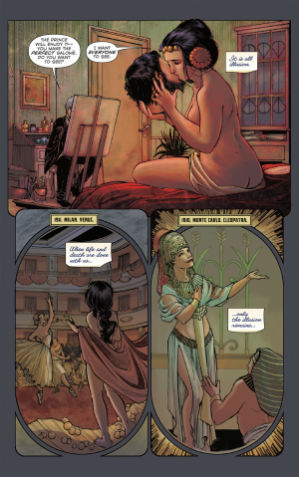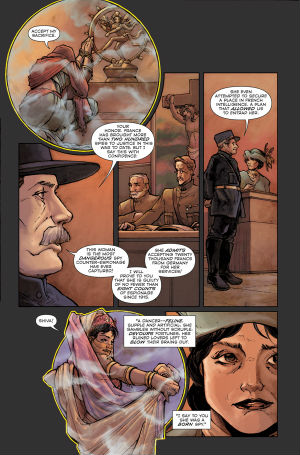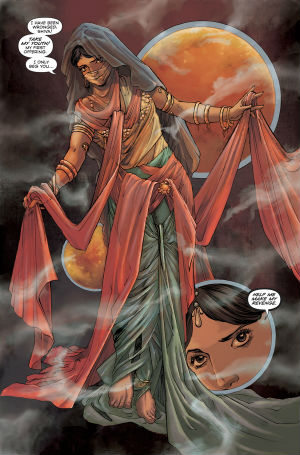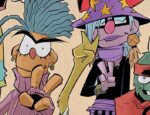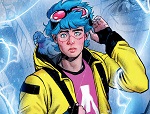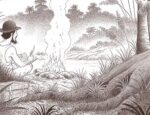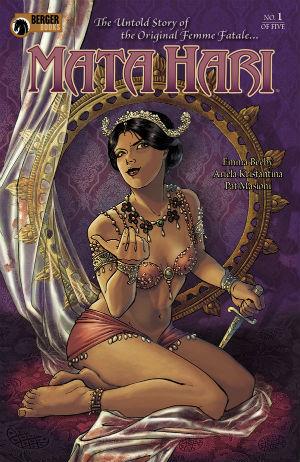 Just over a century after her death, the story of the infamous Mata Hari – the “exotic dancer” executed in 1917 on charges of being a German spy – is the latest release from Dark Horse’s Berger Books imprint. Writer Emma Beeby and artist Ariela Kristantina’s account seeks to look beyond the notoriety of the events of her life and to strip away the layers of historical sensationalism to find the very human tale at its heart.
Just over a century after her death, the story of the infamous Mata Hari – the “exotic dancer” executed in 1917 on charges of being a German spy – is the latest release from Dark Horse’s Berger Books imprint. Writer Emma Beeby and artist Ariela Kristantina’s account seeks to look beyond the notoriety of the events of her life and to strip away the layers of historical sensationalism to find the very human tale at its heart.
In an afterword to this first issue writer Beeby talks about her fascination with the life of the woman born Margaretha Geertruida Zelle, whose wartime activities would lead to that grim demise by firing squad, accused of complicity in the deaths of thousands of soldiers. Beeby’s choice of narrative structure creates an unforgiving sense of fatalism from the very outset. Events continually jump timeframes, beginning shortly before Mata Hari’s death and then pulling backwards through the pre-war years. This non-linear perspective continues throughout, presenting fragmentary glimpses of her experiences from childhood to execution and utilising the narrative device of quoting from her own memoirs.
It’s a technique that ensures the book is soaked in a feeling of inescapable predetermination; one that permeates every page and panel and makes every fractured insight into Mata Hari’s past all the more poignant. Zelle’s life is presented here as if it were individual pieces of a puzzle being slotted together. But that final, inevitable greater picture is one we are already familiar with, and the slow reveal is all the more ominous for that foreknowledge. Echoes of the past shape the future and the audience are constantly reminded of their powerlessness to be anything other than observers in this bleak procession of events.
Ariela Kristantina’s art has a loose realism that gives it a tangibly connective power, especially in terms of visual characterisation. Interspersed throughout this first issue’s pages we see Mata Hari in her stage persona, interacting unseen with the prime story and providing an almost meta commentary on events. We don’t need Beeby’s afterword to realise that Kristantina’s research to create a period feel for this issue has been meticulous, and that’s accentuated perfectly by Pat Masioni’s sepia-style subdued yet highly atmospheric colouring. Sal Cipriano’s use of alternate fonts also underlines the parallel narratives that are being woven together in this first issue.
Beeby makes no claim to this being a definitive account of her subject’s life. Rigid authenticity is not the order of the day here. Instead what she captures is the haunting essence of her story and an ethereal enigma, the true reality of which is forever lost to time as fact, fiction, supposition and self-mythologising merge into one. Another strong opener for a series from the Berger Books line which, unsurprisingly, is already shaping up to be one of 2018’s most exciting comics ranges.
Emma Beeby (W), Ariela Kristantina (A), Pat Masioni (C), Sal Cipriano (L) • Dark Horse Comics/Berger Books, $3.99
Review by Andy Oliver





